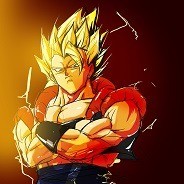You are going to read an article about the history of the british money system. choose the most suitable heading from the list (a-i) for each part (1-8) of the article. there is one extra heading which you don't need to use. 0 с england has enjoyed a relatively stable single national currency with an unbroken history of over 900 years . the origins of the pound sterling date even further back. in fact, the pound as a unit of currency has never had to be replaced by a new currency, in contrast to many european currencies. the pound has also been preferred and widely accepted in internationsl trade for two hundred years. as a result, other countries had to adapt their currency arrangements to fit in with sterling. 1 economic activity in the very earliest civilizations had to do with trading or “bartering”. services were traded to meet individual needs. for example, a master would reward his servant with food and shelter. goods of equal, value were also exchanged. people then began to use items that had the same value to everyone. in the earliest civilizations cattle, grain, salt, leaves, and seeds were traded to buy necessities. england has returned to barter several times over the course of its history. 2 the ancient britons used sword blades as currency before they started minting coins. the designs of the earliest coins, dating back to 125 bc, were imitations of macedonia’s pure gold coins. as their experience of minting grew the designs became more original. the coins started to reflect their lifestyle and interests. the horse was a common feature as they were a rural people. their love of hunting and farming can be seen in the designs of boars and ears of wheat. 3 coins continued to be used in britain while it was part of the roman empire. the romans did, however, impose their own coinage on britain. small brass and copper “minissimi” coins were used for low value purchases. when the roman empire collapsed in the 5th century and britain was invaded by the anglo-saxons, minting and the use of coins ceased in england for over 200 years. the island went back to bartering and using other, more primitive, standards of value. 4 with the viking invasions of england came an enormous increase in the production of coins. alfred the great, who prevented the vikings from conquering all of england, had eight mints built so that he would have enough coins to pay his soldiers and to build forts and ships. the kings who came after alfred had to keep increasing the number of mints in order to pay for the defense of the country. it became so complicated, that in 928, king athelstan passed a law stating that there was to be only one single type of money or currency in england, and there has been just one ever since. this occurred many centuries before other major european countries such as france, germany and italy had their own national currency. 5 the pound was introduced into england by the normans even before william 1 conquered and united england in 1066. it was originally an amount of silver weighing a pound and became the basis of the monetary systems throughout the british colonies. with britain’s head start in the industrial revolution, developments in banking, her military victories and the spread of the british empire during the 19th century, the pound sterling became the world’s most important currency. 6 in1816 the standard of value for the sterling changed from silver to gold and other countries followed the british example, making the gold standard an international one. during the worldwide economic crisis in 1931, britain was forced to abandon the gold standard. the us dollar replaced the pound sterling as the key global currency. other countries then fixed their exchange rated against the dollar, the value of which remained defined in terms of gold. 7 after the norman conquest, the pound was divided into twenty shillings. the shillings were made of silver, and the weight of twenty shillings was exactly that of one pound. the shillings were then divided into twelve pence or pennies. the pennies were made of copper, and the weight of twelve pennies was exactly the weight of one shilling. on 15th february 1971, britain introduced decimal system. this meant that the pound (£) was equal to 100 pence (p) which made it much easier to use. a)the strongest currency worldwide. b) deciding on a single currency. c) the long history of the pound. d) using goods to buy and sell. e)coins showed the ancient way of life. f) the oldest money in the world, g making it simpler for all. h) from coins to trade again. i) changing the way the pound is measured.
155
169
Ответы на вопрос:
1)peter had been a junior clerk for three years. lately he had looked for a better post but so far he has not found anything. 2) i didn`t watch the film because i had seen it before. 3) george had been waiting for one hour before the bus came. 4) the for sale notice has been taken so i suppose the house has been sold.
Реши свою проблему, спроси otvet5GPT
-
Быстро
Мгновенный ответ на твой вопрос -
Точно
Бот обладает знаниями во всех сферах -
Бесплатно
Задай вопрос и получи ответ бесплатно

Популярно: Английский язык
-
Do outside on sunny day and look at your shadow early...
 fghhjk127.04.2021 07:38
fghhjk127.04.2021 07:38 -
Abook to read on holidays перевести...
 Arukaa208706.04.2022 05:36
Arukaa208706.04.2022 05:36 -
Сто . write guestions for the activities in exercise 2 a .start with can...
 Mаjоr27.05.2021 22:58
Mаjоr27.05.2021 22:58 -
Переведите текст на . на аллее идут мальчики к ним подходят и говорят дайте...
 xacku104.07.2021 23:54
xacku104.07.2021 23:54 -
Придумать 11 предложений с разными предлогами по теме город. и с оборотом...
 natka01208.04.2021 03:19
natka01208.04.2021 03:19 -
Task 1. Read the text “Irish dish” and do the tasks: (6 points) 1) complete...
 kirill87717.05.2021 05:34
kirill87717.05.2021 05:34 -
ответьте на вопросы. Task II. Writing. Choose the verb: 1. How many portions...
 SadEngineer26.01.2023 23:31
SadEngineer26.01.2023 23:31 -
Вот эти слова надо вставлять : text message, social media post, email, chatting,...
 Def228yufdd28.12.2021 09:49
Def228yufdd28.12.2021 09:49 -
II.Writing. Write about your favourite recipe of - use topical vocabulary...
 Dhshssh18.07.2020 02:13
Dhshssh18.07.2020 02:13 -
Опешите картину на английском ...
 LPKenion31.05.2021 01:36
LPKenion31.05.2021 01:36

Есть вопросы?
-
Как otvet5GPT работает?
otvet5GPT использует большую языковую модель вместе с базой данных GPT для обеспечения высококачественных образовательных результатов. otvet5GPT действует как доступный академический ресурс вне класса. -
Сколько это стоит?
Проект находиться на стадии тестирования и все услуги бесплатны. -
Могу ли я использовать otvet5GPT в школе?
Конечно! Нейросеть может помочь вам делать конспекты лекций, придумывать идеи в классе и многое другое! -
В чем отличия от ChatGPT?
otvet5GPT черпает академические источники из собственной базы данных и предназначен специально для студентов. otvet5GPT также адаптируется к вашему стилю письма, предоставляя ряд образовательных инструментов, предназначенных для улучшения обучения.
